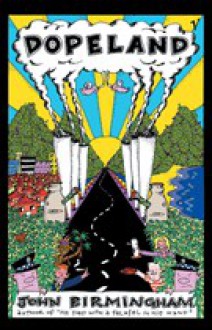
I guess the one thing that I liked about this book was how McCullum opened it: while politics is an honourable profession, there are not many honourable politicians out there. However, while it is written as a farcial account from an older politician to a younger politician, there are many things in this book that probably hold true to politics today. Of course, as they say, a year is a long time in politics and a lot of things have happened between the time this book was written and now, however the basic principles about surviving in politics still hold true today as they did back when the book was written.
The problem with being an honourable politician is that if you are one then you are not going to get all that far, and the problem with modern politics is that it is not focused on the long term. In many cases politics always works in three year cycles, and of those three years, only two of them have any production in them (I am speaking of Australian federal politics here, where the electoral cycle lasts three years). However, when I look at some other countries where the cycle lasts six years I feel that it can create an entrenched system, meaning that once a president is elected you are stuck with that president for six years.
I remember back in 1999 when John Howard won his second election by the skin of his teeth, but then went jaunting around claiming that he had a mandate because the Australian people had given it to him. Basically, his attitude was that once he was elected he could pretty much do what he liked, whether the people actually wanted him to do it or not. In that instance it was the GST, and he had been open with that throughout the election, but then another five years down the track (and one more election victories) he introduced Workchoices, which to many people came out of left field.
Obviously here in Australia we do have the power to pressure our politicians to shift their position, but then again there are a lot of other factors involved as well. If a small group of people are put out by a decision, then it can be seen that the government does not care because they are only interested in keeping the majority happy, and of course as long as the majority are happy then they will continue to get elected. This was proven in the 1994 election because, despite joining in with an illegal war against Iraq, Howard still managed to win comfortably, but in a way that had a lot to do with his opponent. Even the worst prime minister can still win an election if his opponent is even more on the nose (take Paul Keating and John Hewson for example).
Mind you, this book is not about politics in general, but rather how to survive the cut throat world of parliament as a politician. In truth the best chance of getting elected is to be endorsed by one of the major political parties. This is not always the case though as there are a few independents that have been elected to the lower house, but they tend to be the exception as opposed to the rule. It will be interesting to see how much pull Bob Katter has next election, since when somebody does come up as a threat, such as Pauline Hanson, both parties can effectively unite to keep the loose cannon out (though it is clear that Bob Katter is much smarter, and more level headed, than Pauline Hanson, though on the other hand she does reflect the views of a lot of Australians).
The interesting thing about politics is that you don't actually need any qualifications to be one: all you need is to know the right people, and to have the support of the majority of the electorate. In fact there have been instances where the government has been so on the nose that even the most unlikely candidates have been elected simply because he (or she) must be better than the other guy. Then again that is the fickle nature of democratic elections. However, in developed democracies democratic elections are little more than institutionalised revolutions, though despite that neither party (and they are usually two) never brings about any change. In fact most of the time people vote for the status quo, and it is only when governments move to change too much (such as Workchoices) that the government will get thrown out. As such, in seeing that governments in our developed country actually do little to really change things, I wonder whether governments in the developing world actually do anything to lift the people of their countries out of the mire in which that they find themselves stuck.

 Log in with Facebook
Log in with Facebook 








